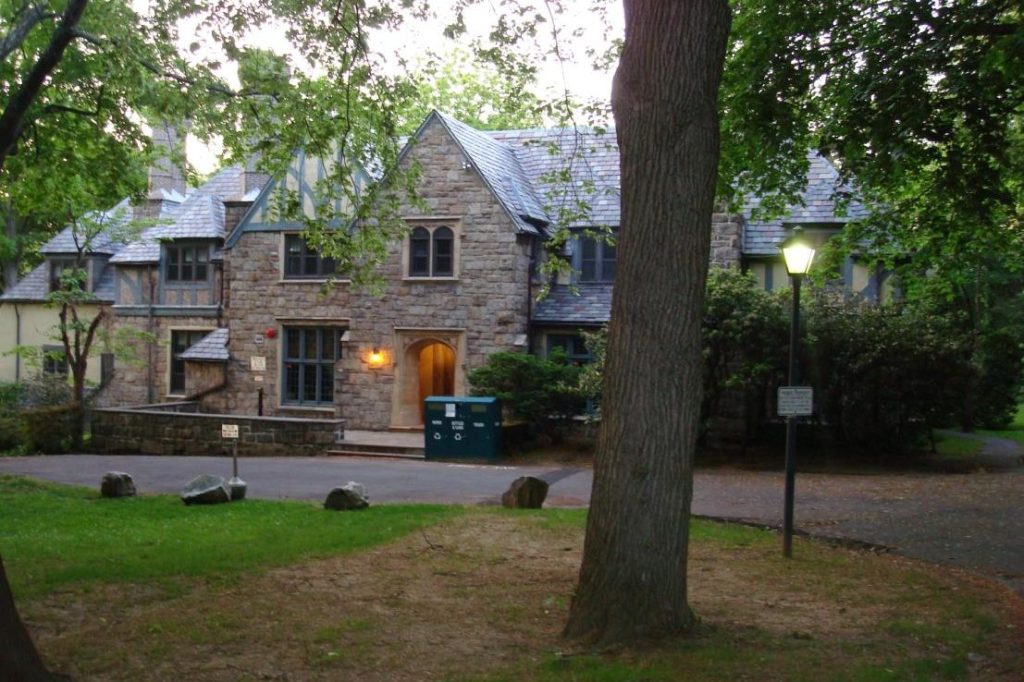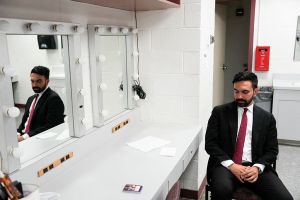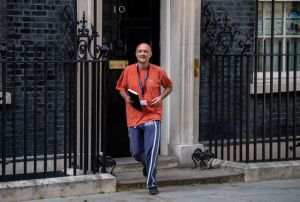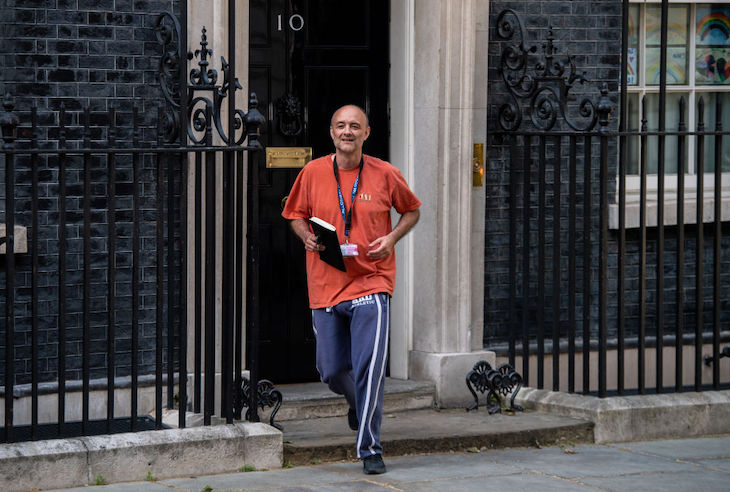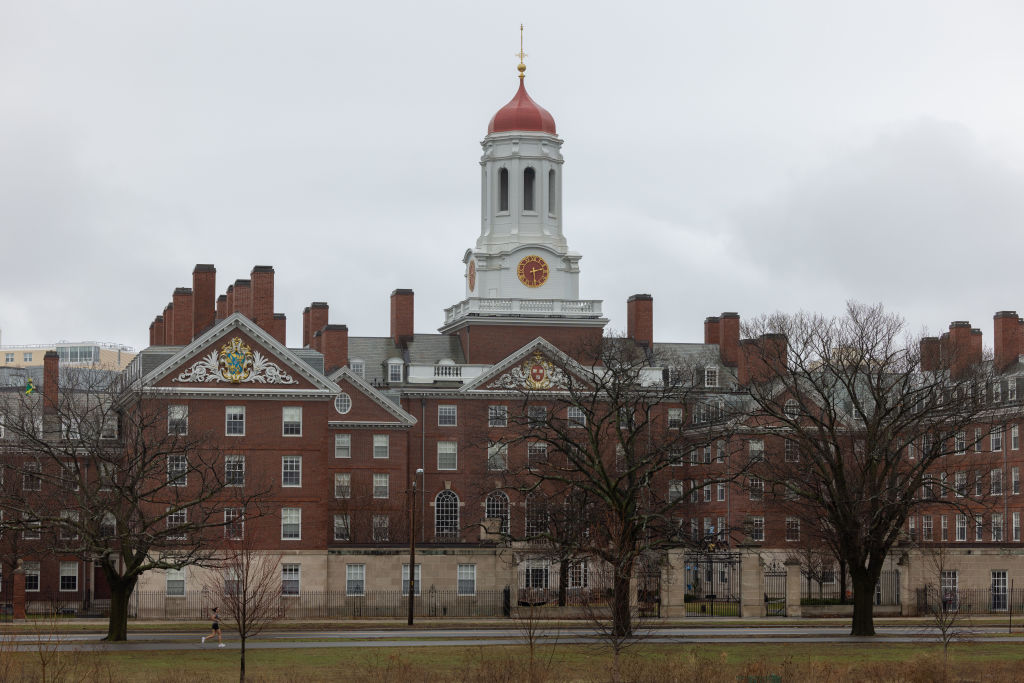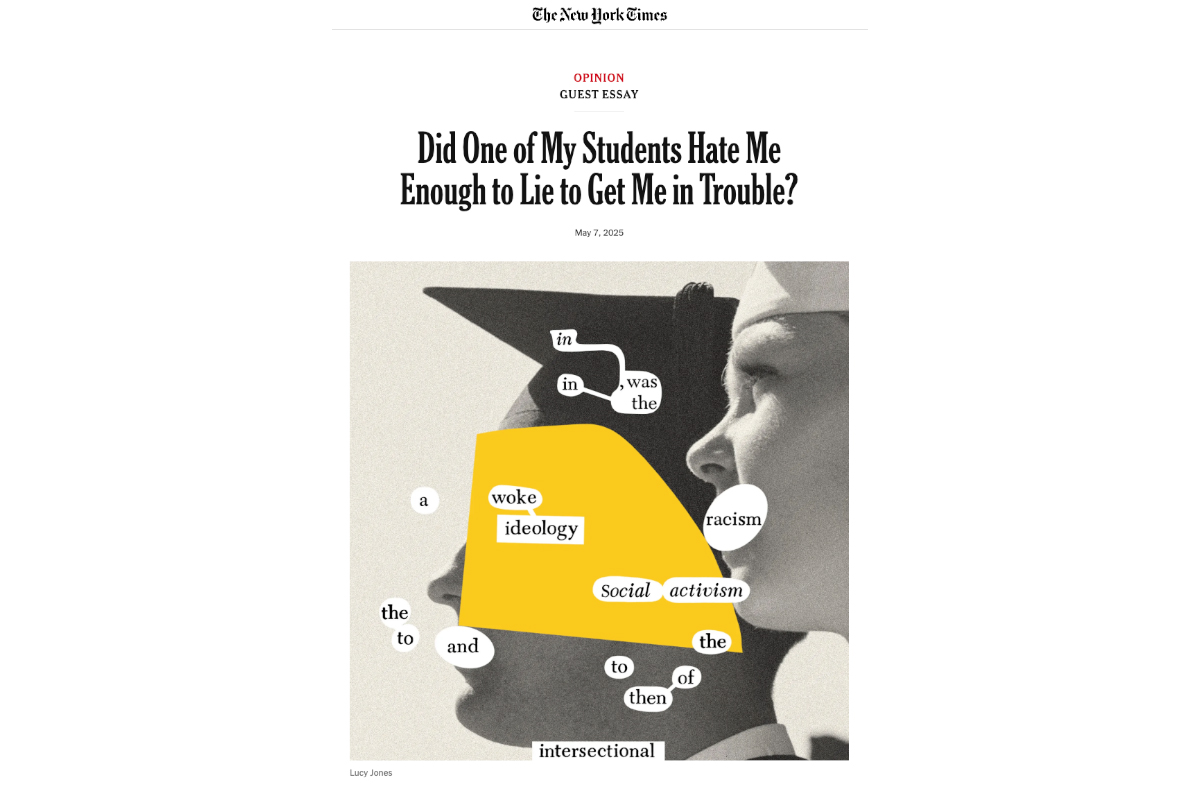Sarah Lawrence College claims that its mission is to graduate students who are, ‘diverse in every definition of the word.’ Unfortunately, recent events which have been in the national eye, suggest otherwise. And this story involves me.
Seizing on an op-ed I wrote for The New York Times a few months ago, in which I questioned the lack of ideological balance of the school’s extracurricular programming, a group of student protesters calling themselves the Diaspora Coalition labeled me a racist misogynist. They demanded that my ‘position at the College be put up to tenure review to a panel of the Diaspora Coalition and at least three faculty members of color.’
As a direct assault on academic freedom and free speech, this demand by the Diaspora Coalition should have sent shivers down the spines of all of my colleagues at Sarah Lawrence College and compelled an immediate and strong faculty response. That simply did not happen.
In fact, after the op-ed’s initial publication in October, there was a national media storm in which I was slandered and defamed, my family’s safety was threatened, and my personal property was destroyed on campus.
While the college president eventually issued a perfunctory statement noting that I had ‘every right, and the full support of the college, to pursue and publish this work,’ the faculty’s support was minimal.
The college’s faculty ‘Committee on the Conditions on Teaching’ attempted to draft a strong declaration supporting the right of all faculty to free speech, but it was eventually watered down to into a weak message that simply supported the official statement that had already been issued by the president. Only 27 members of the faculty community signed the document, roughly 7 percent of the total faculty. Thus, to my shock, a proclamation in defense of academic freedom, freedom of speech and mutual respect clearly was deemed controversial and not overwhelmingly supported by my own colleagues.
Now, six months later, with the Diaspora Coalition’s latest attempt to attack academic freedom, the Sarah Lawrence faculty could have redeemed themselves and been galvanized to support free expression. Instead, they opted for silence — and, what’s worse, many of them were supportive of the student protesters’ demands.
As of this writing, 40 professors signed on and endorsed the Diaspora Coalition’s demand list. While not a huge percentage, 12 percent of the faculty — more than the number who supported the general statement about free speech back in October — endorsed the students’ demand to challenge my tenure and my right to free speech and the expression of ideas. All this, mind you, because I wrote an opinion piece based on original survey data, which was vetted and published by the New York Times.
Two years ago, as controversies surrounding free speech began to flare up at American colleges, I surveyed close to 900 faculty members around the country to gauge their views on free speech. The data revealed a very positive picture: college faculty overwhelmingly support free speech along with open environments for learning on their campuses, and this support transcends traditional cleavages such as ideology and field of study. 93 percent of faculty agree with the statement that, ‘[U]niversity life requires that people with diverse viewpoints and perspectives encounter each other in an environment where they feel free to speak up and challenge each other.’ In other words, there is almost universal support for the exchange of ideas and open discourse.
While the data should prompt some optimism for the promotion of viewpoint diversity at a time when it is sorely lacking, it now appears that many faculty members do not stand up for free speech when that backing is needed most.
When Charles Murray visited Middlebury College about two years ago, violence erupted because of his visit and a group of faculty sent a letter before the event arguing that ‘To introduce him — even to critique his arguments — only lends legitimacy to his ideas as worth engaging with.’ However, only after some institutional soul searching and the school’s president stating that the college ‘failed to live up to our core values,’ did a letter emerge signed by many other faculty which asserted the core values that colleges are places which train students to think, question, debate, evaluate evidence, and listen to each other.
Freedom of expression is a core value of the academe and viewpoint diversity is essential for a healthy educational and democratic environment. Moreover, free speech and academic freedom is a privilege that academics have fought for over many decades. Yet it appears many staff members are simply unwilling to fight for it, especially if it means having to stand up and be the ‘adult in the room’ in the face of a student mob — even though in theory 93 percent of faculty members across the country support academic freedom. This is incredibly dangerous and irresponsible on the part of professors; faculty who have escaped the culture wars so far may suddenly find themselves in the sights of a mob and expect that their colleagues would be there to support them. Based on my experience, as well as those at Middlebury, Yale, Williams, Evergreen, and many others, faculty should not get too comfortable.
It is especially sad that Sarah Lawrence has joined the list of schools where freedom of speech has come under attack, because the school itself has a history of supporting academic freedom. Harold Taylor, a former president of the college, was so deeply troubled by the Cold War challenges to freedom of speech that he made the following statement to a group of Sarah Lawrence students in 1952: ‘The most important possession we have at Sarah Lawrence College is our political and intellectual independence and our freedom to carry out a democratic educational program. We can only preserve this independence and this freedom if we all stand together as students and faculty against the attacks on this freedom from whatever quarter they may come.’
With that heritage at Sarah Lawrence — and with the prior knowledge that, in theory, 93 percent of professors across the country support freedom of academic inquiry — I would have never expected my academic freedom to come under attack by my very colleagues. While I am astonished that so many of my colleagues would prefer to stay silent about its import or try to undermine it, I offer my story as a warning to those who teach on other college and university campuses across the country. Professors overwhelmingly claim to believe in free speech, but that is not enough. We need to act on it and speak up in support of real intellectual and viewpoint diversity. For if faculty oppose it or look away, they will help push academic freedom into its grave.
Samuel J. Abrams is professor of politics at Sarah Lawrence College and a visiting scholar at the American Enterprise Institute.



